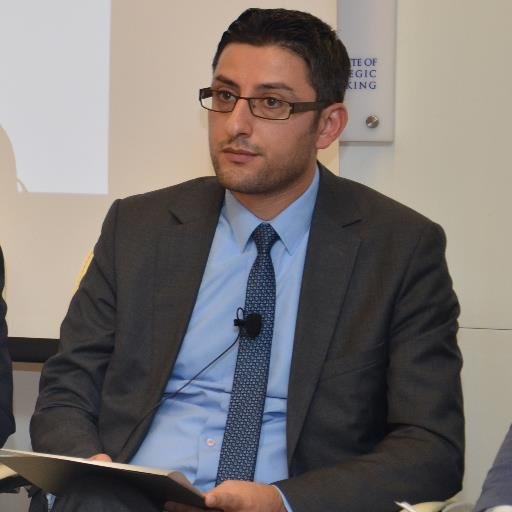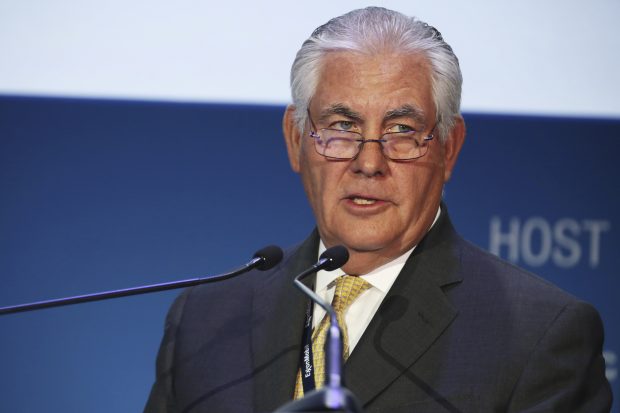“Anti-Americanism is on the rise around the world”
Mr. Ferit TEMUR who is an expert on the post-Soviet region. He is the author of two books: “20. Asrın Casusluk Şebekesi: Cambridge Beşlisi” (Cambridge Five: The Espionage Network of the XX. Century) and Yükselen Asya’da Şangay İşbirliği Örgütü: Dünü, Bugünü ve Yarını” (The Shanghai Cooperation Organization in Rising Asia: Past, Present, and Future).
He answered the questions of The AsiaN and touched various topics from US elections to the hot developments in the Middle East and Central Asia.
- Mr. Temur, first of all, could you give your opinions about results of the assassination of Russian Ambassador Andrey Karlov? What was the main target of this attempt?
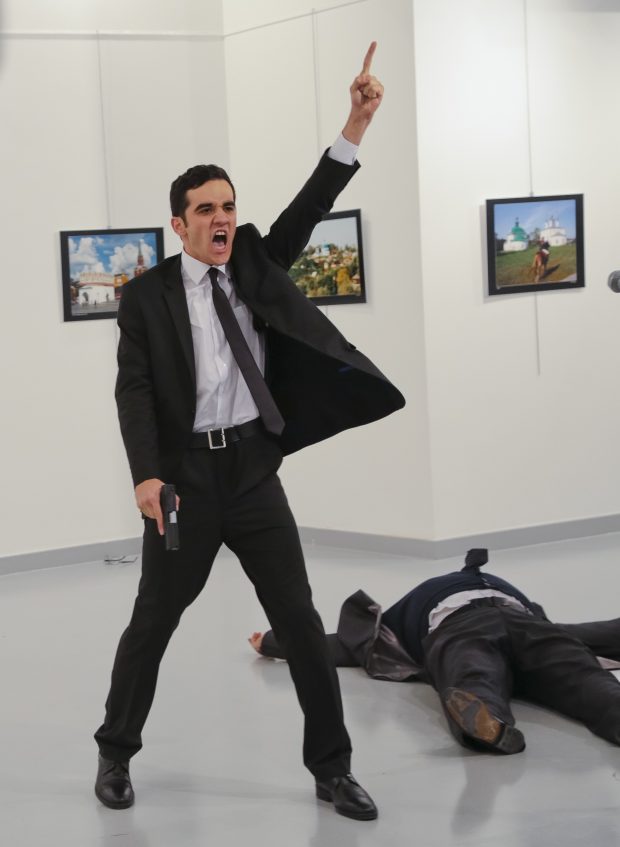
Mevlut Mert Altintas, an off-duty police officer, shouts after shooting Andrei Karlov, right, the Russian ambassador to Turkey, at an art gallery in Ankara, Turkey, on Monday, Dec. 19, 2016. Turkey’s president implicated a U.S.-based Muslim cleric in the killing of Russia’s envoy to Turkey, saying the policeman who carried out the attack was a member of his “terror organization.” (AP Photo/Burhan Ozbilici)
I assess this case as a professional secret service setup. The assassin certainly set a goal to kill Russian ambassador and die at the end. During the action, he displayed pre-memorized Turkish and Arabic discourses and theatrical behaviours. In this way, the activist tried to present himself as “Al Nusraian” and tried to indicate that the reason for the action was Russia’s Syria policy. However, perception tried to be created by organizational (Al Nusraian) was contrary with terrorist’s attire, background, and professionalism. This is a conscious choice by the “intelligence mind” which fictionalized the action, and the main purpose is “misleading”. In other words, such political assassinations aimed at foreign states, misleading by power groups acting this event, because it carries a great risk.
On Karlov assassinate, intentionally choose “Al Nusra” false flag, and taking precaution by calling mislead. If “El Nusra” were to be presented as “the main misconception”, certainly the form of action and the profile of the actor would have been designed entirely in another fiction. However, the identity and organizational belonging of the assassin clearly points to the Fetullahist Terror Organization (“FETO”), where the “actual misconduct” is given over to FETO, which is used as a ‘subcontractor’ in the action. The role of FETO in the act is the cause of rooted CIA ties. In other words, the presence of another “intelligence mind” that plays in the game in this action makes itself felt, but camouflage its presence by putting the USA in the position of number one suspect thanks to FETO. This leads to the thesis that “the intelligence mind” of the issue resolved very well the analyzed between the CIA and the FETO, and that it could infiltrate the capillaries of the FETO in parallel with the CIA over time, thereby partially lead the organization. (However, it is necessary for the Turkish intelligence to make a successful attempt to infiltrate and seize to FETO) The last act of assassination has shown that this “intelligence mind” can use FETO as a subcontractor in very unclear incidents.
As for the possible targets of the assassination… On the contrary, the reinforcement of the Turkish-Russian rapprochement, the articulation of Ankara to the Damascus-Tehran-Moscow pact in the Syrian crisis, the fact that a police person could not secure the security of the Republic of Turkey by using this assassination, creating a perilous country sensation, ensuring the oppression on Erdogan that it is not safe and can be killed anytime is continuous and thus makes strategic mistakes in the management of the country through a critical process, purging the US-driven FETO and creating a new and possibly smaller form of self, and I think that Russia is also aiming at limiting this living space to only Western geography by providing an anti-FETO policy outside of its borders.
- What do you think about the Shanghai Cooperation Organisation (SCO) agenda of Turkey?
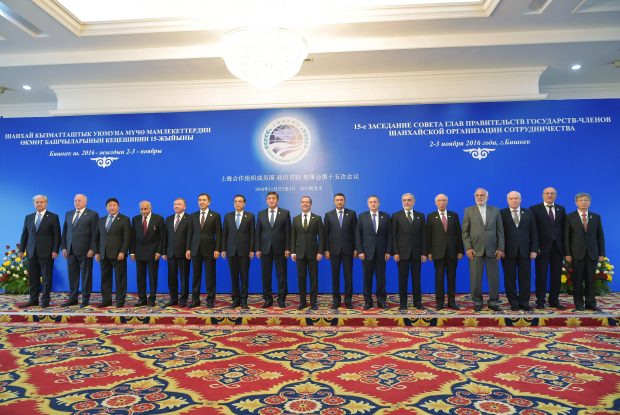
Heads of government from China, Kazakhstan, Kyrgyzstan, Russia, Tajikistan, and Uzbekistan and delegation members pose during a photo session in Bishkek, Kyrgyzstan, Thursday, Nov. 3, 2016. (Alexander Astafyev/Sputnik, Government Press Service, Pool Photo via AP)
Turkey’s political and intellectual interest in the Shanghai Cooperation Organization is very low. I think the Erdogan government has brought the membership of SCO as a diplomatic trump card because of the political differences and some tensions between the US and EU countries and Turkey over the last few years. I don’t see a realistic possibility that Turkey, which has a 200-year westernization adventure, articulated to the west in a great deal of political, military and economical way, will soon become a full member of the SCO. Western powers have had a profound influence over the Republic of Turkey and we have witnessed since the NATO membership in 1952 that there can be any kind of “operational intervention” in this country, such as military and economic coups, assassinations.
However, in terms of the national interests of Turkey, it is also possible to develop bilateral and multilateral relations with the SCO countries and to achieve a strategic axis that will defeat the geopolitical encirclement of the West. The uncertainty of the future of relations with the EU triggers the alternative axis to be considered more in Ankara.
Now there is a serious confidence crisis between the West and Turkey, as the US and EU countries openly support organizations that target Turkey’s national security, such as the FETO, PKK, PYD. In such a conjuncture, there is a growing interest in non-Western formations. But it’s not based on a long-term strategic plan in terms of Ankara, we can argue that it developed reactively to the West. On the SCO side, there is not yet a perspective of initiative process for Turkey. However, Turkey-SCO relations create a “win-win” situation for both parties, even if they are not full membership, to be brought to the observer state.
- How can the normalization process between Turkey and Russia affect the developments in Syria?
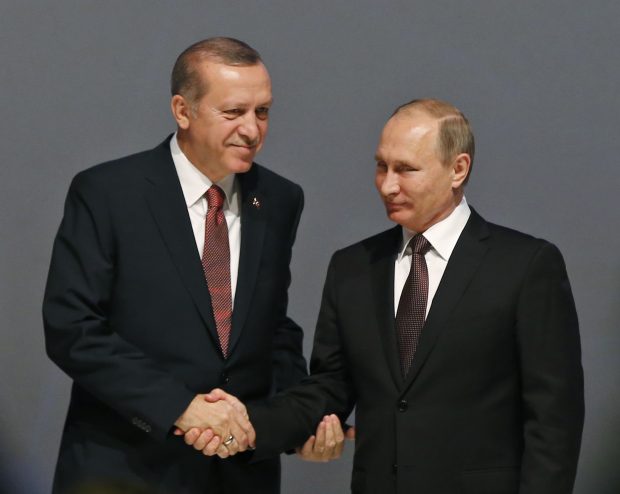
In this Oct. 10, 2016 file photo, Turkey’s President Recep Tayyip Erdogan, left and Russian President Vladimir Putin, shake hands following the group photo at the World Energy Congress, in Istanbul, Turkey. With his victory in Aleppo, Syrian President Bashar Assad appears to have survived a nearly six-year war to drive him from power, but he is now more dependent on outside powers than ever. His key allies Russia and Iran, along with Turkey, are best placed to determine Syria’s endgame, which could more closely resemble a grand bargain among great powers than a political settlement among Syrians themselves. (AP Photo/Emrah Gurel, File)
The resumption of relations between Turkey and Russia after the SU-24 jet crisis on November 24, 2015, and the relative harmonization of the policies of the two countries in the Syrian crisis have made a significant contribution to the Moscow-Tehran-Damascus administration’s attainment of today’s strong position. Undoubtedly, the share of security concerns that Turkey has heard from US policies trying to establish autonomous Kurdish regions in the northern regions of Iraq and Syria under the pretext of fighting DAESH. The protection of the territorial integrity of Syria or, worst of all, the fact that an autonomous Kurdish region does not emerge here is vital for Turkey.
Since the outbreak of the Syrian crisis, Ankara’s Syrian policy, which was carried out by the foreign minister Ahmet Davutoglu and his undersecretary Feridun Sinirlioglu in the US-Israeli line, unfortunately, ended with a complete failure. The presence of nearly 4 million refugee seekers, the strengthening of the PKK and PYD terrorist organizations in the immediate vicinity and the increase in the terrorist incidents in the country forced Turkey to go to policy change in Syria. It is preferable to cooperate with the Russian-Iranian and the Damascus administrations as the US’s approach to the Middle East is highly suspicious. After the last assassination of the Karlov, it can be argued that Turkey will be added more to Russia’s Syrian policies.
- Can the normalization process play a positive role in the Nagorno-Karabakh conflict and Turkish-Armenian relations?
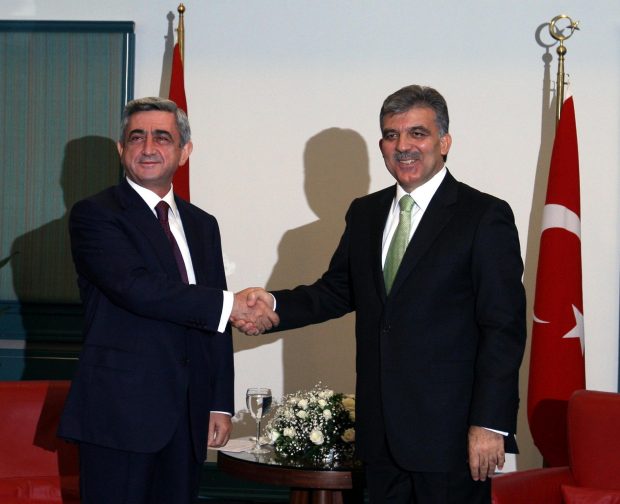
BURSA, Oct. 14, 2009 – Former Turkish President Abdullah Gul (R) shakes hands with the visiting Armenian President Serzh Sargsyan in Turkish city of Bursa Oct. 14, 2009. Serzh Sargsyan arrived in Bursa Wednesday to attend a Turkey-Armenia World Cup qualifier as part of the two countries’ move to normalize ties after nearly a century of rift. (Xinhua/Anadolu News Agency)
You know that under the emergence of the Nagorno-Karabakh conflict, there is the role of the Russian geostrategy for separating the Turkish and Turkish worlds from each other terrestrially. It should be emphasized that, in general, Turkish-Russian relations are based on geopolitical fault lines. I do not think it will be a solution for Azerbaijan in the Nagorno-Karabakh problem as long as these strategic interest differences between the two countries continue and Russia regards Turkey as a geopolitical competitor. But in the mid-wade, it seems that Turkey’s deepening distrust relations with the West and the deepening of Turkey’s presence in the Eurasian Economic Union may weaken Russia’s insecurity in Turkey, and the solution in Nagorno-Karabakh for the integration of Ankara into its geopolitical design, and it is also possible to assume that Armenian relations would allow normalization.
An option without Turkey may be that Russia is willing to integrate Azerbaijan into its Eurasian project economically and military. In such a case, Russia may agree that the Nagorno-Karabakh conflict can be resolved in favor of Azerbaijan, which is convicted. I also think that Russia’s current national security strategy will not allow the status quo to change in the contested dispute.
- Do you expect any radical change in US foreign policy towards Russia during the term of Trump administration?
Donald Trump frequently criticized American foreign policy throughout his presidential campaign. Interestingly, Russians also -I don’t know if there is a similar situation in history-, they are in an attitude that supports an American presidential candidate so much. And they are so glad that Trump was elected. Trump will appoint Rex Tillerson, the new Exxon Mobil company manager, as the new foreign minister, who received the Friendship Order for contributions to Russia’s energy sector in 2013 by Russian President Putin, a serious sign of change.
In fact, I don’t think that the US could adequately assess the opportunities arising from the collapse of the USSR in the post-Cold War era, especially with the foreign policy that followed after September 11, 2001. While its rivals, China and Russia successfully assessed the “fight against terrorism” concept introduced by themselves, the US turned it into a fiasco despite tremendous possibilities it had. It is very clear that there is a problem in perceiving the world outside the continents of Americans. The historical texture in geostrategic basins is attempting to carry out large-scale political and military operations without sufficiently knowing the social codes, and this has always been a failure. Anti-Americanism is on the rise around the world. To reach a settlement with Russia in the Eurasian-led geopolitical struggle will present a new climate of relaxation in their global strategy. But we can say that Trump’s work will not be so easy because the current foreign policy understanding benefits certain circles within the US power balances.
- How do you evaluate the future of the Eurasian Economic Union? Is there any agenda for the new member countries?
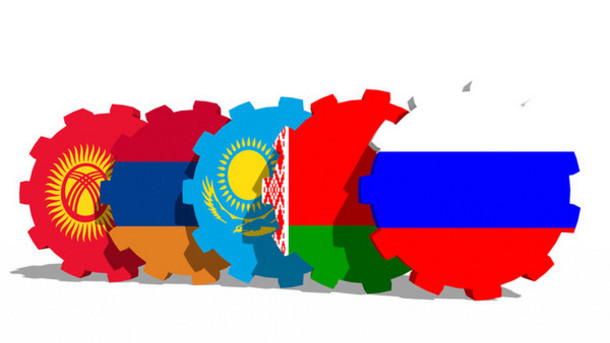 The Eurasian Economic Union is a project aimed at bringing back the former member states that seceded from the Soviet Union, back to Moscow-centered. Russia has tried to pass on life through the Independent States Community, followed by the Eurasian Economic Community and etc. is a geo-economic design that has been built.
The Eurasian Economic Union is a project aimed at bringing back the former member states that seceded from the Soviet Union, back to Moscow-centered. Russia has tried to pass on life through the Independent States Community, followed by the Eurasian Economic Community and etc. is a geo-economic design that has been built.
Although the Russian Great Strategy aims to eliminate the American unipolarity throughout the world with China and establish a rather polar order instead, this project is of strategic importance because it sees China as “increasingly number two” on the regional level, and that “rising” China in the geopolitical equation possesses a threat not only to the region in the long run, but also to its interests on its territory. I think that there are 3 basic strategic axes in the Russian foreign policy towards the end of the 2000’s. These were the micro plan to macro scale 1-Eurasian Economic Union, 2-Shanghai Cooperation Organization, 3-BRICS. Despite its strategic importance for Russia, the EEU has faced troubled political conditions and economic sanctions due to reluctant relations for the West in 2014.
Although it has a certain potential, I don’t think that it would be able to get the desired results from the EEU in the medium and long term, if a partner such as Turkey or Iran, which has the geo-economic power in region or continuation showdown with the west. Moreover, in the Eurasian geopolitical equation, I won’t expect any supranational formation without Ukraine and Turkey to be long lifetime and productive. As a matter of fact, growing geo-economic impact of China considering the current EEU is highly likely that the new Silk Road project will be ineffective in the long run. However, I think that the current Russian geostrategic horizon for enlargement is currently limited to the former Soviet countries in Caucasus and Central Asia.
Thank you, Mr. Temur.
Who is Ferit TEMUR?
He is an expert on the post-Soviet region. He did his internship in the different think tank or state organizations in Turkey or abroad in the field of “Russian-Eurasian” affairs, he also worked for these organizations. He is the author of two books: “20. Asrın Casusluk Şebekesi: Cambridge Beşlisi” (Cambridge Five: The Espionage Network of the XX. Century) and Yükselen Asya’da Şangay İşbirliği Örgütü: Dünü, Bugünü ve Yarını” (The Shanghai Cooperation Organization in Rising Asia: Past, Present, and Future). His areas of specialization are Turkish Foreign Policy, Russian Foreign and Energy Policy, Russian State and Ethnic Structure, Political Structures & Energy, Security and Foreign Policies of the Caucasus and the Central Asian States, Interstate Regional Formations in Eurasia and Intelligence Theory. He currently continues his doctoral studies (Ph.D.) in the department of International Relations at the Diplomatic Academy of the MFA of the Russian Federation. He speaks Russian and English.




















